 Petzlover
Petzlover Both Munchkin and Pantherette are originated from United States. Both Munchkin and Pantherette are having almost same weight. Both Munchkin and Pantherette has same life span. Both Munchkin and Pantherette has same litter size. Both Munchkin and Pantherette requires Low Maintenance.
Both Munchkin and Pantherette are originated from United States. Both Munchkin and Pantherette are having almost same weight. Both Munchkin and Pantherette has same life span. Both Munchkin and Pantherette has same litter size. Both Munchkin and Pantherette requires Low Maintenance.
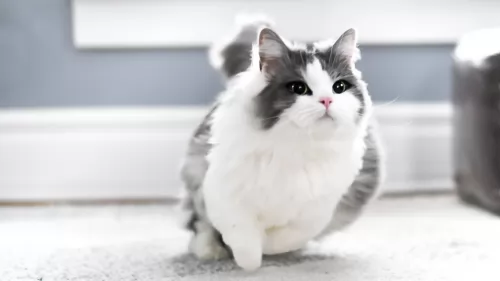 Information about the short-legged Munchkin cat has been around since the 1940s. A British veterinary report in 1944 noted these short-legged cats.
Information about the short-legged Munchkin cat has been around since the 1940s. A British veterinary report in 1944 noted these short-legged cats.
During the 2nd World War, the cats disappeared but other short-legged cats were seen in Russia during 1956 and then the United States in the 1970s.
The cat was introduced to the general public in 1991 but for many years it wasn't accepted in cat competitions. Eventually, the Munchkin was proposed as a new breed by foundation breeders and accepted by TICA into its New Breed development program in 1994. The Munchkin breed achieved TICA Championship status in May 2003. The Cat Fanciers Association doesn’t recognize the Munchkin.
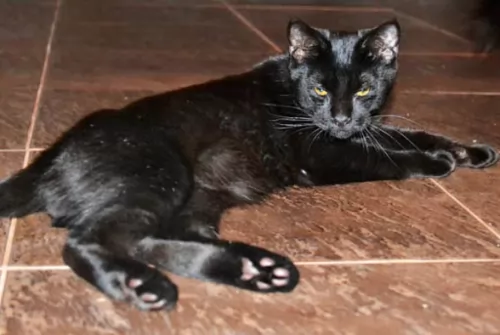 There isn’t too much history to the beautiful black Panetherette cat as it is still in development. It is in other words a hybrid cat and the name ‘Pantherette’ was give to the cat to describe its magnificent looks.
There isn’t too much history to the beautiful black Panetherette cat as it is still in development. It is in other words a hybrid cat and the name ‘Pantherette’ was give to the cat to describe its magnificent looks.
It looks just like the wild Black Panther or Black Leopard. There is, however, certainly no wild black panther or leopard that has been used
The Pantherette is a hybrid breed of cat that is still under development. It is intended to look similar to a Black Panther. It is a new breed based on a Melanistic (Black) Bengals as one of the foundation breeds.
The Pantherette is registered with the International Progressive Cat Breeders Alliance (IPCBA).
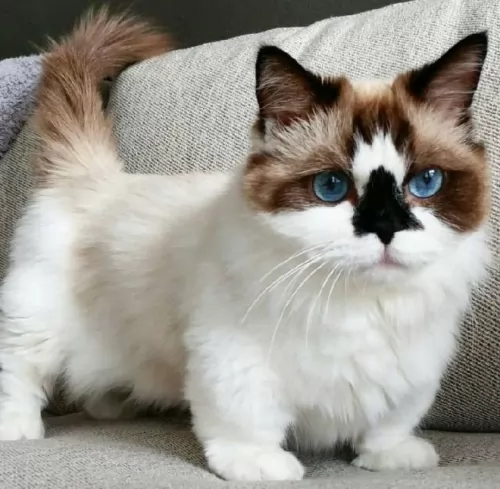 The Munchkin is a small to medium-sized, muscular cat with a thick coat that comes in all colors and patterns. In fact, color, pattern, and coat length will vary.
The Munchkin is a small to medium-sized, muscular cat with a thick coat that comes in all colors and patterns. In fact, color, pattern, and coat length will vary.
There is also a long-haired variety. It usually weighs between 3 and 4kg. It has short, stubby little legs and a torso that hangs fairly low to the ground. The cat’s back legs are somewhat longer than the front legs. The legs of these cats can be slightly bowed. The eyes can be any color.
The Munchkin is such a social, outgoing cat that just loves being petted and pampered by his human family. He is sociable and friendly as well as intelligent and is easy to train. While he is an amicable cat and can get on well with everyone in the family, it isn’t a good idea to have such a cat as a playmate for children as they can become injured.
An interesting feature with this cat is the way he doesn’t really sit like other cats but has a way of sitting up on his legs, much like a rabbit.
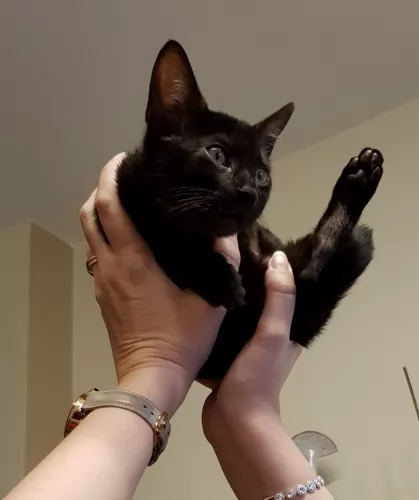 The Panehterette is a medium to large black cat still being developed, It weights in the area of 4 – 9kg. It is muscular and strong with a long body and a broadish head.
The Panehterette is a medium to large black cat still being developed, It weights in the area of 4 – 9kg. It is muscular and strong with a long body and a broadish head.
The legs at the back are slightly longer than the front. The legs are strong and muscular and medium in length with large, round paws. The tail of the Panethereet is medium to long in length, thick and slightly tapered.
The beautiful coat is short to medium in length and luxurious and silky. The ears are small to medium with rounded tips. The eyes are oval and set wide apart. They can be gold-colored or green.
The Pantherette breed is still in the beginning stages of its development, so there isn’t too much information on its temperament. Those who work with these cats say that they have the typical temperament of a domesticated cat and that they are alert, friendly, curious and that they enjoy being in the company of their human companions.
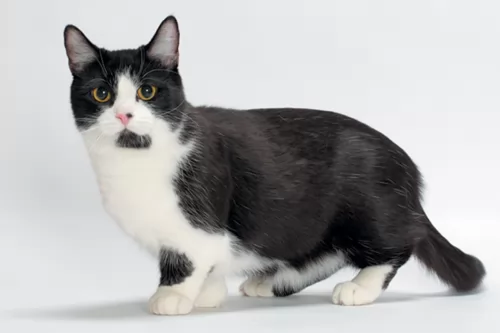 The Munchkin may be short and stock but he is just as active and playful as any other cat. When you have him in your home, you'll discover that his short little legs don't stop him from trying out everything other cats do.
The Munchkin may be short and stock but he is just as active and playful as any other cat. When you have him in your home, you'll discover that his short little legs don't stop him from trying out everything other cats do.
He is ready to show you what he's made of. He is a confident, social cat and is friendly, intelligent, and loving towards his human family. He makes a devoted companion and he will get along with other cats in the family as well as dogs.
He may be a bit odd to look at but if you want an excellent companion, the Munchkin is well worth your consideration.
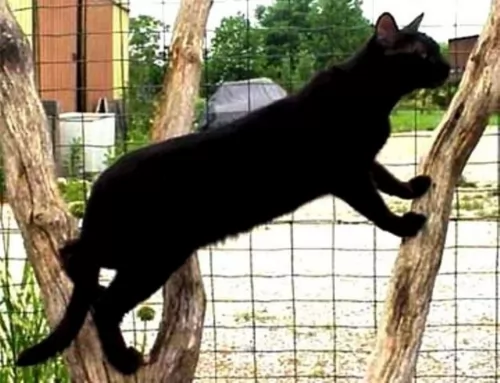 Domestic hybrid cats such as the Pantherette make great pets. However, you need to bear in mind that these cats have that wild side to them and they often try to escape.
Domestic hybrid cats such as the Pantherette make great pets. However, you need to bear in mind that these cats have that wild side to them and they often try to escape.
They are larger than the regular cat and its always advisable to have an outdoor shelter for them as well. The Pantherette is a truly beautiful cat but read up all you can on hybrid cats before you bring one into your home.
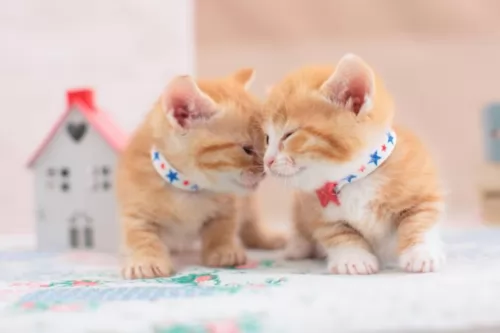 Because this is a fairly new breed, it's still not too clear about its health. It was once thought that the Munchkin cat could develop spinal problems because of its short legs.
Because this is a fairly new breed, it's still not too clear about its health. It was once thought that the Munchkin cat could develop spinal problems because of its short legs.
It was in 1995 that some breeders had some of their older Munchkins x-rayed to see if there were any signs of joint or bone problems, but none were found.
The Munchkin cat should also be vaccinated as a kitten and be treated for parasites. To ensure the good health of your sweet little Munchkin cat, give him the best diet possible.
In fact, if you take good care of your Munchkin and you make sure to get all the necessary vaccines for him and get him to the vet when he shows signs of illness, your munchkin can reach 12 to 15 years of age.
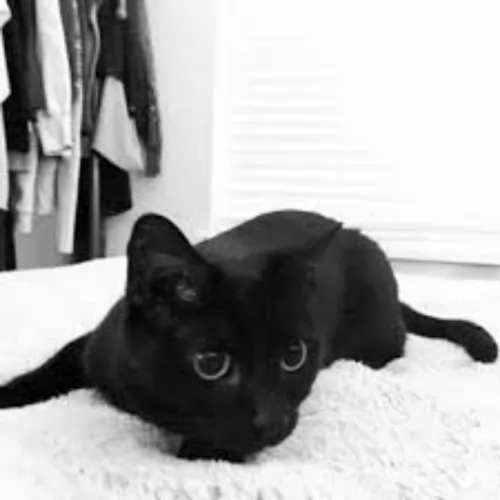 Hybrids suffer from genetic defects. These defects can often require surgery. A cat such as the Pantherette also requires a top-notch diet. You may even have to speak to your vet because these cats often battle to digest their food.
Hybrids suffer from genetic defects. These defects can often require surgery. A cat such as the Pantherette also requires a top-notch diet. You may even have to speak to your vet because these cats often battle to digest their food.
People who work with these hybrid cats say that a problem they often see is inflammatory bowel disease and diarrhea. Remember that cats like these are carnivores and their diets have to be made up essentially of meat if they are to remain healthy.
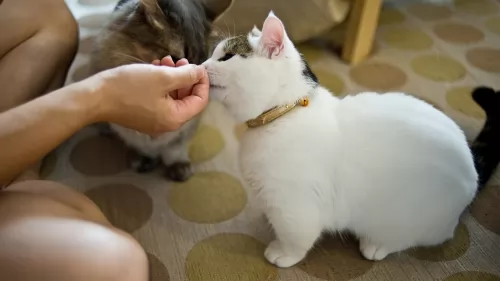 Every cat is unique and the Munchkin is a unique cat, This little cat is a carnivore just like any other cat and his diet must be made up mostly of protein.
Every cat is unique and the Munchkin is a unique cat, This little cat is a carnivore just like any other cat and his diet must be made up mostly of protein.
Speak to your vet about the best food for your Munchkin because a kitten will require a different diet to a senior Munchkin. Also, you don’t want your Munchkin to put on too much weight as this can be detrimental to his joints.
Not only that, being overweight comes with all kinds of health issues. The manufacturers of commercially manufactured cat foods have made sure that they have brought out foods for every stage of a cat's life and age.
Munchkin cats will need to have their fur brushed at least once a week. Trim the claws at the same time.
Provide your sweet little Munchkin with a litter box and keep the litter box immaculately clean, removing the feces every single day.
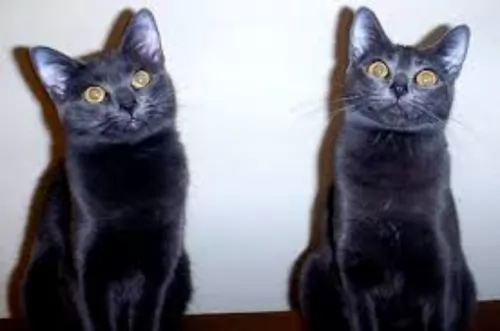 To ensure a quality lifestyle for your Panetherett, you want to care for him properly. A well cared for cat is one that becomes the best pet.
To ensure a quality lifestyle for your Panetherett, you want to care for him properly. A well cared for cat is one that becomes the best pet.
He will have to go to the vet at some stage for sickness and for his vaccines.
Make sure you invest in a cat carrier or sturdy leash as your cat won’t like going to the vet. These cats can struggle, wriggle and writhe and he will make every effort to get away.
Speak to your vet about ticks, fleas, and worms in your pet as these parasites can cause havoc with your cat’s health.
Domestic hybrids such as the Pantherette will need to have a litter box that is cleaned every day. These cats like a clean litter box. Make sure that you scoop the litter box at least one time each day. If you don't clean his litter box regularly, you’ll find that he tends to use other areas of your home as a toilet. Being a hybrid, it is quite likely that he will in any case as these cat's wild side see to this.
Ensure he gets the best cat food there is. A cat is a carnivore which means he is a meat eater. If you buy commercially manufactured pet food, make sure that the top ingredients on the label have meat and protein listed at the top.
Speak to your vet about the absolute importance of quality cat food for your feline pet, as poor quality food can make your cat sick and you’ll be spending more time at the vet.
Cats can easily become dehydrated, so ensure that he has a bowl of fresh, cool water available to him around the clock. You can have one or two water bowls available to him and the water bowls must be cleaned regularly.